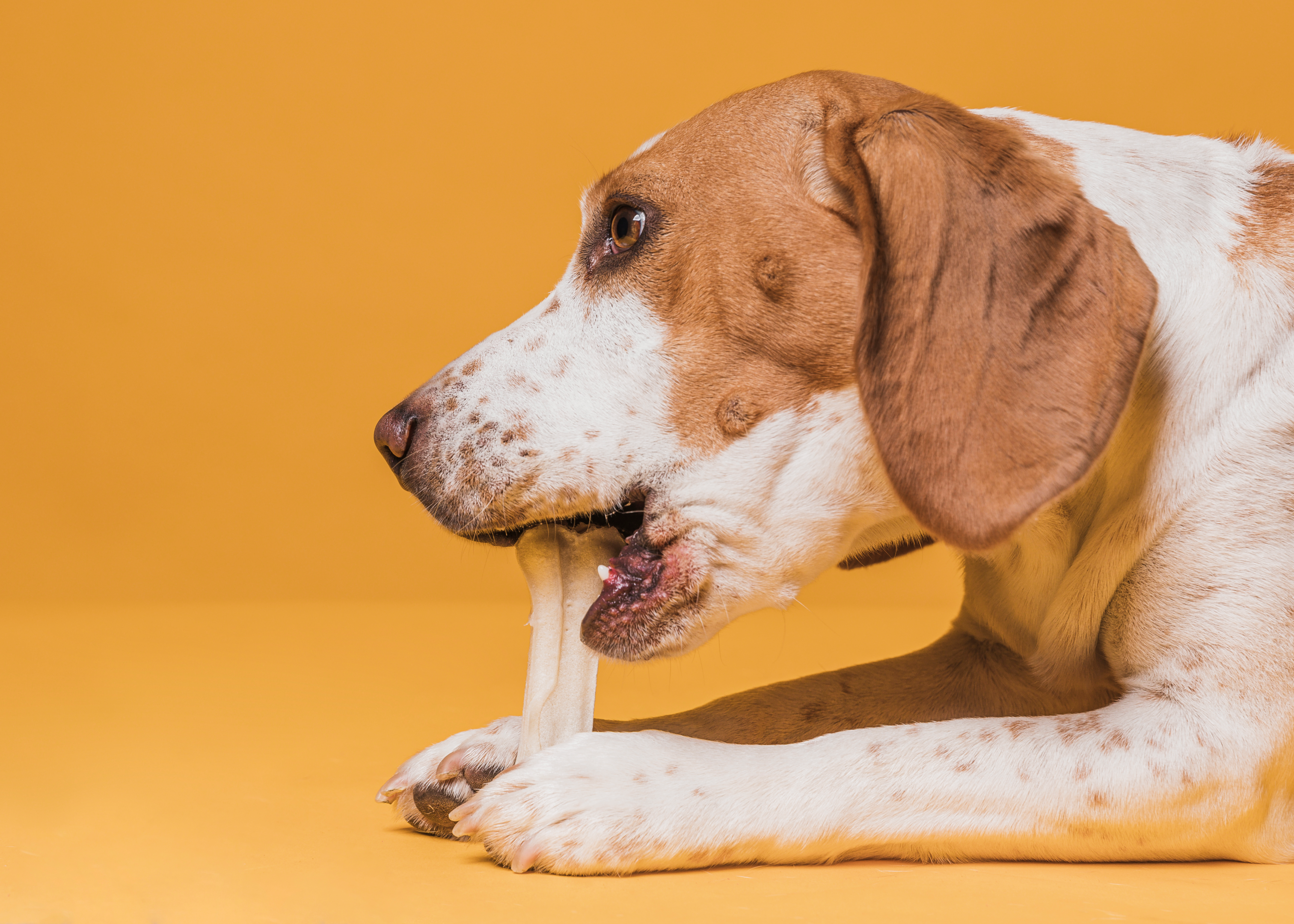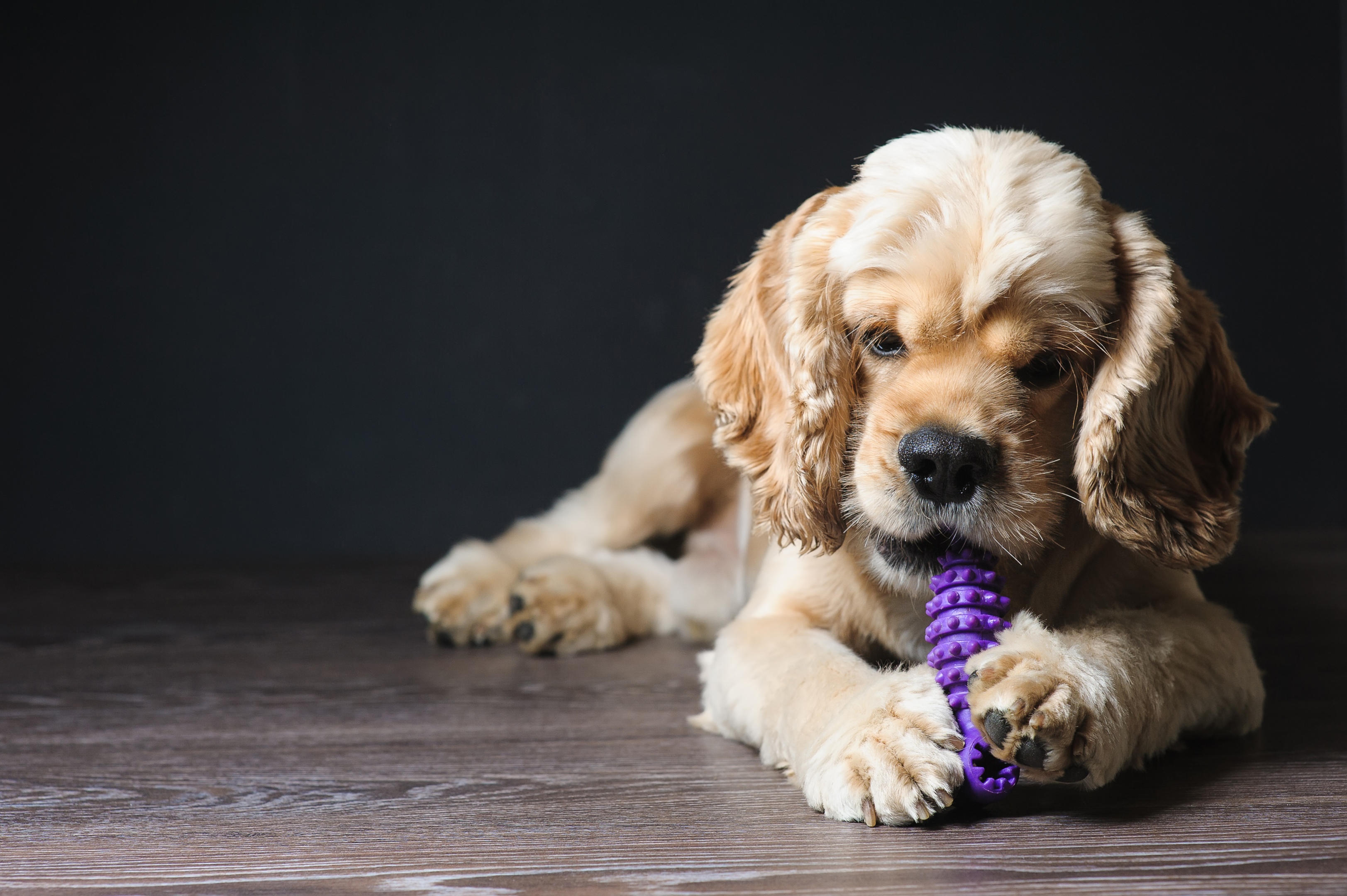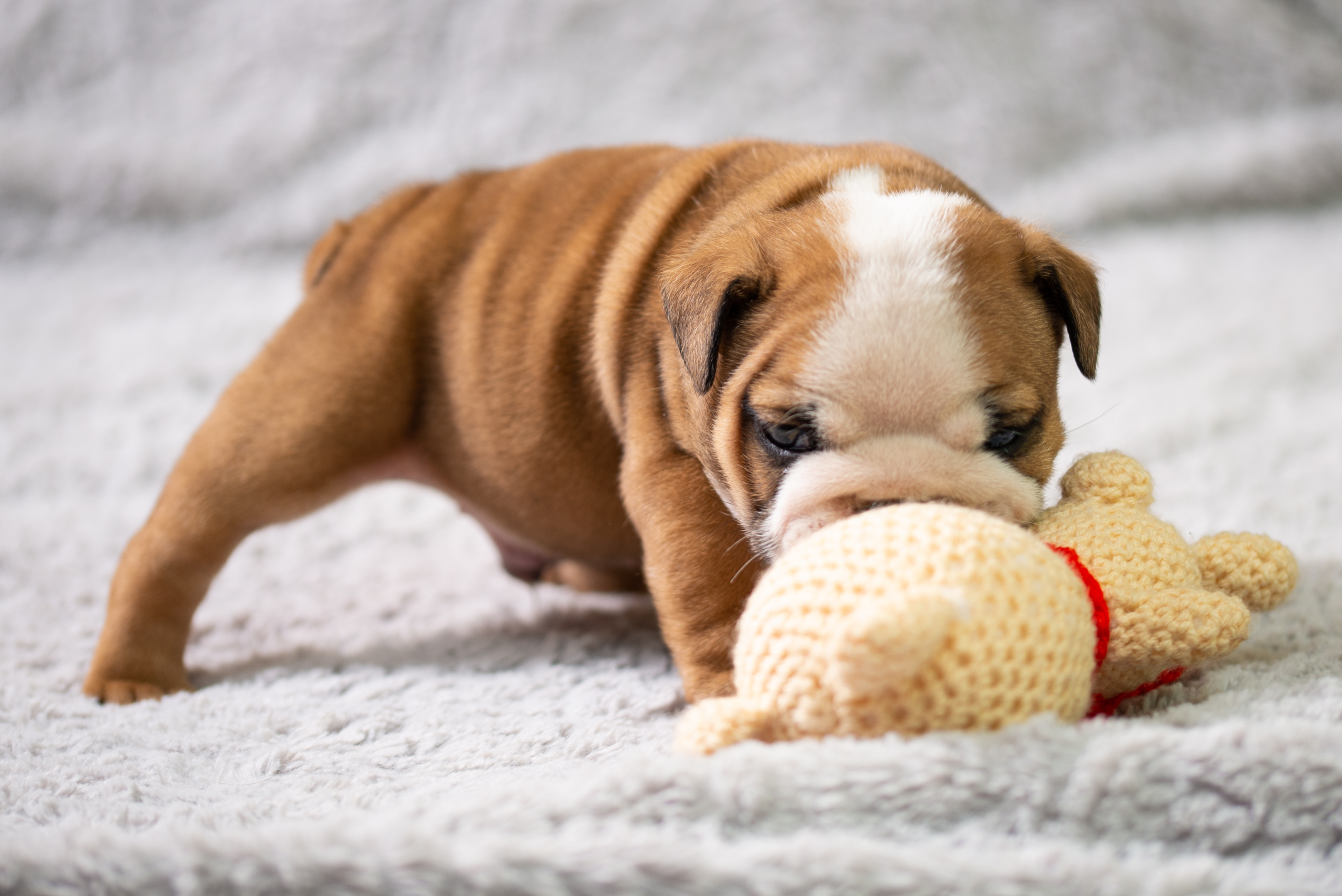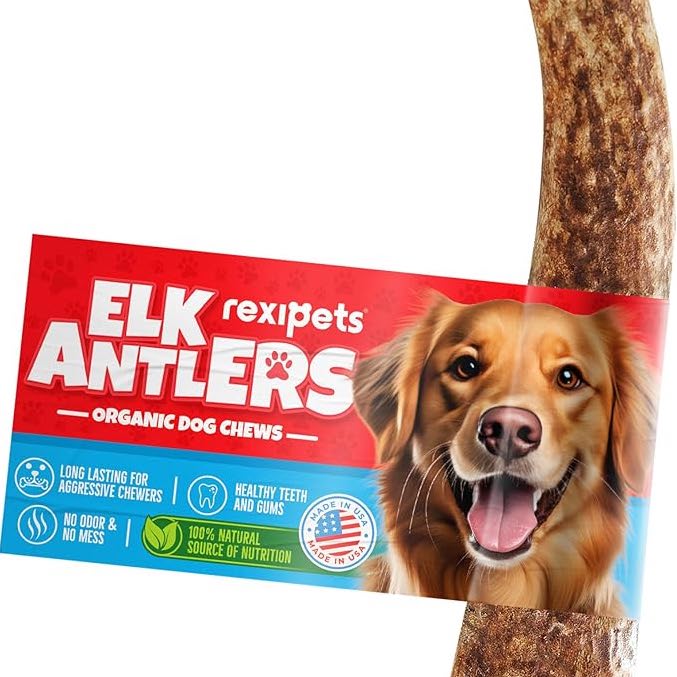All dog parents have one thing in common - our dogs love to chew, which is why we're always on the hunt for the best dog chew toys out there to keep our valuables safe from the nibble party under the bed.
Many dog owners recommend trying antlers for your puppy's chewing needs. But when it comes to ensuring puppy safety, understanding the truth about antler chews is essential. These Natural Dog Chews are popular among dog owners, but there are a lot of things you need to know about them.
Let's dive into the benefits of natural products and different ways you can give your dog antler chews to help you make informed decisions for your beloved pup.
Can You Give Antlers to Your Pup?

We all agree on one thing: it is tempting to get your new puppy a pack of deer antler chews or elk antler chews available easily out there, especially if they're vigorous chewers and you want something durable.
But you need to be super careful with what you give your little puppy, as certain items can be too hard for their underdeveloped teeth.
Whole antler chews may seem like a cost-effective option due to their durability, but they are typically too hard for young dogs. Vets often advise against giving whole deer and elk antler chews to puppies.
However, it's safe to give your puppy split antlers, which are generally marketed as safe in pet stores, as they have the marrow easily accessible and your puppy doesn't have to chew too hard for it.
Are Antler Chews Safe for Puppies?

Whole antlers, deer and moose chews are not considered safe for puppies. Their hardness can pose a risk to young furry friends' teeth and gums.
It's best to opt for split antler chew options for puppies to ensure their safety and dental and overall health.
It's best to steer clear of giving whole antler chews to puppies until their adult teeth are fully developed and their bones have matured, as it can hinder your puppy's development. This, however, varies, depending on the size and breed of the dog. Generally, most puppies should not be given whole antler chews until they are around one year old.
Benefits of Antlers for Puppies
Introducing antler chews to puppies can seem like a great idea, offering natural benefits and dental support. Let's look at some of the benefits of antler chews for puppies.
-
Teething comfort
Deer antlers can be beneficial for teething puppies as they provide a natural and durable chewing option. This helps massage the teething puppies' gums, reducing discomfort and the urge to chew on things they shouldn't chew on. Chewing on antler chews also promotes dental health by removing plaque and tartar. However, it's crucial to choose softer deer antler chews options suitable for young dogs to avoid potential dental issues.
Moreover, monitoring your puppy's chewing and making sure they don't swallow large pieces of antler is essential for their safety. Overall, while antler chews can be helpful during teething, it's important to use them responsibly and consider your puppy's specific needs.
-
Strong jaw

Chewing is important for strengthening puppies' jaw muscles, especially during adolescence. While antler chews and bones can be an option, it's essential to provide alternatives as well.
Without appropriate puppy chew toy options, puppies may resort to biting off furniture parts or shoes. Offering a variety of safe and durable puppy chew toys can redirect their chewing behavior and prevent damage to household items.
-
Stress reliever
Chewing is a pleasurable activity for our furry companions, as it triggers the release of endorphins, or "feel-good" chemicals, in their brains. This sensation is not only enjoyable but also a natural behavior for puppies. It is a form of mental and physical stimulation that contributes to their overall well-being.
Chewing helps satisfy their natural instinct to chew while also promoting dental hygiene, relieving stress and boredom, and aiding in training.
-
Dental hygiene

Deer antlers are indeed hard and durable, which can help scrape off plaque and tartar as dogs chew on them. This can contribute to dental hygiene.
However, it's crucial to note that antler chews are not an alternative to regular dental care, like daily teeth brushing or professional cleanings. Moreover, the hardness of antlers may not be suitable for all puppies, especially puppies with developing teeth and jaws.
-
Natural product
Antler chews are a natural and long-lasting option for puppies, which appeals to pet owners looking for treats free of preservatives and additives. They come from shed deer antlers, offering a durable chew that can promote dental health.
Ways to introduce Antlers to Puppies
Introducing antlers dog chews to puppies can be a rewarding experience when done correctly. Let's explore effective and safe ways to introduce antler chews to young dogs and give your dog or puppy a positive chewing experience.
-
Supervision is key
It's crucial to supervise puppies when given new antler chews to ensure they chew safely and do not ingest large pieces of antlers that could lead to digestive problems.
This supervision involves observing their chewing behavior and intervening if they attempt to swallow chunks that are too big. Additionally, monitoring their overall comfort and ensuring the chew toy remains intact and suitable for them is essential for their safety and well-being.
-
Appropriate size

Make sure that you decide the right sized antler for puppy chewing needs, that they are the right size for your puppy's teeth. Using an antler chew that is too small increases the risk of swallowing and poses a choking hazard.
-
Introduce it gradually

Gradually introducing antler chews or other dog chews like rawhide chews to your pups is a wise thing to do, allowing them time to adjust and monitoring their response closely. This approach involves giving your dog a small amount of time to start chewing to observe their tolerance and comfort level.
Observing how your puppy interacts with the antler, such as if they are a strong chewer or show signs of discomfort, helps determine if they are suitable for this type of chewing.
Final Words

While antler chews may seem like an attractive treat option for puppies due to their natural appeal and potential dental benefits, it's crucial to use them with caution and awareness. Understanding that puppies' teeth and jaws are still developing tells us the importance of choosing appropriate antler chew options that are softer and safer.
Moreover, supervision during chewing sessions, gradually introducing the split antlers, and monitoring your furry friend and their reaction after giving antlers or other toys to them are key practices to ensure puppy safety when offering antler chews or any other alternative options. By prioritizing your furry friend's well-being, pet owners can provide a positive chewing experience that supports not only their puppy's teeth but also their overall growth and happiness.
FAQs
What should I do if my puppy swallows a piece of antler?
Contact your vet asap if you suspect your puppy has chewed an antler to splinter and swallowed that part of the antler. They can assess the situation and provide appropriate guidance or treatment.
At what age can puppies safely chew on antlers?
Puppies should avoid antler chews until their adult teeth are fully developed and their jaws are mature, typically around one year of age for most breeds, which is when vets consider antler chews safe.
What are the risks of giving antler chews to puppies?
The main risk is that puppies may break off large pieces of bone, which could be a choking hazard or cause digestive issues. Supervision during chewing is crucial.



0 comments